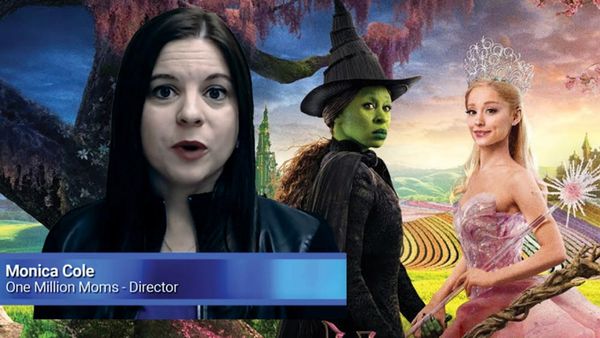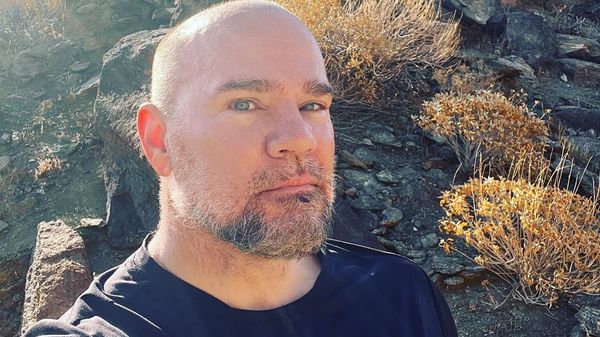
May 16, 2023
LGBT Senior Housing and Care's CEO Amy Simon Addresses Seniors' Fears
Kilian Melloy READ TIME: 8 MIN.
Study after study has shown for years now that LGBTQ+ elders are underseen, underserved, and saddled with health care disparities (amongst others) that inevitably lead to poorer health outcomes than heterosexuals typically experience.
Major areas of concern are medical care and housing, but, as a 2018 study showed, "LGBTQ+ seniors are also at greater risk for social isolation, putting them at greater risk of mental and physical health problems, chronic conditions and even premature death," while "Histories of victimization and discrimination because of sexual orientation or gender identity also contribute to poor health."
It's little wonder, then, that some LGBTQ+ elders don't seek the care they need; they don't think they'll get it, and they might even fear that they'll face homophobic or transphobic abuse and harassment.
Another 2018 report, The LGBT Senior Housing and Care Needs Assessment Survey, showed similar results. As the advocacy and training organization behind that survey, the New Jersey-based LGBT Senior Housing and Care, summarized, the report identified "fear as the main concern of aging LGBTQ+ seniors when considering senior living communities or nursing homes."
"The three top tier concerns include LGBTQ+ seniors who currently live openly fear they will have to go 'back into the closet' to avoid discrimination, harassment or assault," the summary added, going on to note that other concerns included "their partners, allies, family members and friends will not be safe and welcomed in the community where they live" and "they will not have access to healthcare from providers who are experienced in serving the needs of the LGBTQ+ community."

Source: LGBT Senior Housing and Care
Those fears are far from unfounded, and LGBT Senior Housing and Care, LLC – which CEO Amy Simon refers to as "LGBTSHC" for short – has worked for years to address the root issues, providing training to administrators and staff of assisted living and other housing facilities and professional services that intersect with the older adult community.
The company began in 2016, Simon told EDGE, "as a task force of a long-term care facility in New Jersey, that I was representing as a PR consultant."
The facility's executive director – described by Simon as "really progressive" – turned to Simon to help ensure that it would be "a place for LGBTQ seniors."
"The staff had just completed a training course in LGBTQ+ sensitivity," Simon recalled, and the executive director wanted to make that into a selling point.
But Simon saw possibilities that lay beyond an ad campaign.
"What are you actually doing in the facility?" Simon asked. "What does that mean on the ground for someone from the LGBTQ+ community?"
"At the time there wasn't a roadmap for implementing an LGBTQ+ affirming environment, so she really didn't have an answer to that question," Simon recollected. "The executive director then asked me to put together a task force and find out what programs and protocols that they could implement at the facility to be affirming and welcoming, and to provide appropriate care."

Source: LGBT Senior Housing and Care
That led to collaborative work between the LTC administration, Simon, and "advocacy leaders, long-term care administrators from the tri-state area, and some LGBTQ+ older adults," Simon explained. Concurrently, the task group and advocacy organizations were drafting legislation for New Jersey to legally adopt requirements for the training of staff at facilities offering care and housing for seniors to ensure that LGBTQ+ elders would be treated equitably.
LGBTSHC was formed with a number of the task force advocates in 2019 to bring their protocols and procedures for LGBTQ+ affirming and welcoming services to a national audience. The company is lead by CEO Amy Simon and VP of Education and Training David Rosen DBH.
"We communicate a moral proponent to doing this work," Simon noted, "and we communicate a market concept to business people that don't understand that, really, 10% of the market is the LGBTQ+ community – 7% who openly identify as noted in the latest Gallup Poll, [and] you've got to say at least 3% who do not openly identify," not to forget to mention the allies who love and support the community.
And the market is only growing. As researcher Karen I. Frederiksen-Goldsen noted in a report posted at the National Library of Medicine, "By 2060, the number of older adults who self-identify as LGBT will exceed 5 million. These estimates more than double when considering same-sex behavior and romantic relationships."

Source: LGBT Senior Housing and Care
In other words, the trends that are showing that younger generations like Millennials and Gen Z Americans are more comfortable self-identifying as LGBTQ+ than are older generations like the Baby Boomers or Gen Xers can be expected to continue. As today's younger cohorts grow older, they will likely take their openness about their sexual and gender identities into the future, eventually requiring the services they need for their health, wellness, and housing to treat them with the dignity and respect that they deserve.
Those inevitable changes have other roots in the present moment, too. Even today, Simon noted, "There are many more straight, older adults who are in care; they want to know that their [LGBTQ+] grandchildren and children will be welcome and safe when they come to visit them."
But there's a lot of work to be done between now and that coming future. At the moment, Simon pointed out, "There are only four states in the union that have legislation requiring affirming and welcoming LGBTQ+ training in the older adult space – California, Massachusetts, New Jersey and Illinois. The legislations' requirements are vastly different for each of those states."
In much of the country, however, trends are in opposition to equality. "As of the beginning of April 2023, at least 417 anti-LGBTQ+ bills have been introduced in state legislatures across the United States," Simon noted. "As advocates, we are hoping that we can educate other states and/or cities in how to draft and pass LGBTQ+ affirming and welcoming training requirements for older adult providers."

Source: Getty Images
Before legal change can happen, though, social change must be addressed, and one of the major hurdles is getting heterocentric people to understand that their non-heterosexual, non-cisgender clients and fellow citizens are not a monolithic bloc.
"It's hard to get the uninformed to understand that the acronym LGBTQIAAP+ does not refer to one kind of person," Simon explained. "In health care the focus is 'person-directed care,' but not when it comes to the intersectional elements that make up an LGBTQ+ person. The health, housing and service needs are completely different [for each of the different subsets of people represented by the acronym] and have to be approached individually."
The company's training starts with the fundamentals and builds from there. First, Simon outlined, it's necessary to educate participants in the company's training programs as to why the training is even needed. Equally necessary is to elucidate what the different subsets are in the LGBTQIAAP+ community.
But there's another emphasis: the common humanity of all people, including empathy for others. Simon noted that "all older adults have fears and are suffering from age related changes, isolation, health and mental health issues," but emphasized that "the experience is magnified for the LGBTQIAAP+ community, due to a lifetime of discrimination, bias, and trauma as well as other barriers to care."
"We explore our own conscious and unconscious bias and then into relationship with the LGBTQ+ community," Simon went on to explain.

All of this leads up to what many people might consider the most visible part of the issue, which, Simon noted, is "how to create an affirming and welcoming environment."
"99% of the LGBTQIAAP+ community... are scanning for a visual or auditory cue that they can be themselves and be safe in a new environment," Simon said, noting that such vigilance is a constant mental state. "So, we talk about establishing welcoming cues, how to use pronouns, how to change forms and data collection to gather more information and be more gender and orientation inclusive."
A major focus of the training, Simon said, was that staff need to be aware of how bias and discrimination can come from straight, cisgender, and homophobic and transphobic fellow residents of senior housing facilities.
"You know, when you're in long term care, it's high school all over again," Simon noted. "There's the cool table, and there are the cliques. LGBTQ+ older adults were bullied in high school and are afraid of being bullied in a residential community." It's important, then, "to get residents on board, and, as much as possible, understand their own unconscious biases. You can't protect everyone from residents and peers, especially when there are aging cognitive issues, but the staff is trained to address these biases and discriminatory behaviors to ensure that everyone is, and feels, safe in the environment."

When it comes to specifics of how staff and administrators are trained by the company to implement "best practices" around their interactions with LGBTQ+ residents, one crucial starting point is "addressing people by their chosen pronoun," Simon told EDGE. "It's important to say 'My pronoun is...' on your name tag. That's a cue to a community member: You're going to be safer with that person. Or, it can begin a conversation with someone who doesn't understand why you use your pronouns."
Other aspects of the training the company offers have to do with medical and personal privacy.
"In the NJ legislation there are privacy requirements pertaining to the release of non-HIPAA information like one's sexual orientation and gender identity," Simon detailed, "and also for physical privacy when bathing and dressing – for example, who's allowed to be present when somebody is partially or fully unclothed, to eliminate the quizzical staffer who wants to see what this person looks like, or that person looks like."
To further its work, Simon told EDGE, the company has created an associated nonprofit, the LGBT Senior Housing and Care Foundation, "to support training for those who felt they couldn't afford it. And it doesn't have to be our training," Simon added, stating that wherever the training comes from, the goal is "to support people who want to learn and who want to do this work."
"We were fortunate to welcome Executive Director Barbara Heisler, who comes with years of not-for-profit and advocacy experience to lead the work of the 'Foundation,'" Simon told EDGE.
Support for equitable care of elder members of the LGBTQ+ community will have to be a project for the community as a whole, Heisler noted. "We have applied for some institutional grants," Heisler told EDGE, "but it's clear that the majority of the money has to come from individual donors. If each person [reading this interview] gave $1, we'd be in really good shape to fund some really great advocacy work to continue education work and provide the resources for training individuals in healthcare, residential and older adult service settings."
To learn more about LGBT Senior Housing and Care and the LGBT Senior Housing and Care Foundation, follow this link. To support the LGBT Senior Housing and Care Foundation, click here to access the donation page.
Kilian Melloy serves as EDGE Media Network's Associate Arts Editor and Staff Contributor. His professional memberships include the National Lesbian & Gay Journalists Association, the Boston Online Film Critics Association, The Gay and Lesbian Entertainment Critics Association, and the Boston Theater Critics Association's Elliot Norton Awards Committee.







